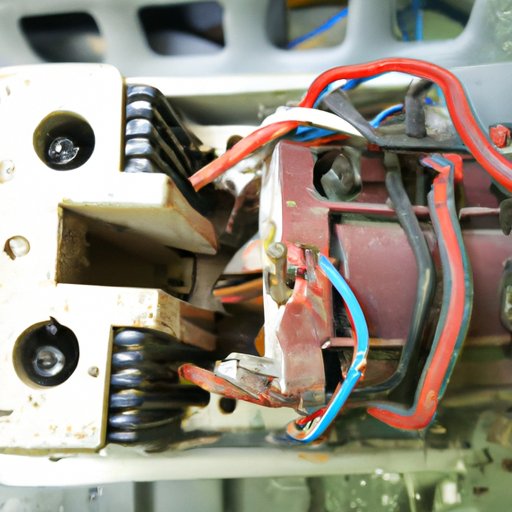Introduction
A starter is an important part of a vehicle’s engine. It is responsible for providing the initial power to start the engine and keep it running. When a starter begins to malfunction or fail, it can cause a variety of issues with the vehicle, ranging from a slow start to complete engine failure. Knowing how to identify when a starter is bad is essential for keeping your vehicle running smoothly.

Check Voltage Output of the Starter
One way to determine if a starter is bad is to check the voltage output of the starter. The voltage output should be between 9 and 16 volts, so you will need to use a multimeter to measure this. To do this, attach one lead of the multimeter to the positive terminal of the battery and the other lead to the starter. If the voltage reading is lower than 9 volts, then the starter is likely bad.
In addition to low voltage readings, there are several other signs that may indicate a faulty voltage output. These include a clicking sound coming from the starter, a dimming of the headlights, or a buzzing sound from the starter relay. If any of these signs are present, then the starter is likely bad.

Inspect for Any Physical Damage or Corrosion
Another way to determine if a starter is bad is to inspect it for any physical damage or corrosion. Damage to the starter may include cracks, dents, or broken wires. Corrosion may also occur, which can cause the starter to fail. To inspect for damage or corrosion, remove the starter and inspect it carefully for any signs of damage or corrosion.
If any damage or corrosion is found, then the starter should be replaced as soon as possible. Even if no damage or corrosion is found, it is still recommended to have the starter tested by a professional mechanic to ensure that it is functioning properly.
Listen for Strange Noises
Another way to tell if a starter is bad is to listen for any strange noises coming from the starter. Common noises that may indicate a bad starter include grinding, squealing, or rattling. These noises may be caused by worn out parts inside the starter or by dirt or debris getting stuck in the starter. If any of these noises are heard, then the starter should be checked by a professional mechanic.
It is also important to note that some vehicles may produce a slight humming noise when the starter is engaged. This is normal and should not be considered an indication of a bad starter.
Check for Burnt Out Electrical Components
Another way to tell if a starter is bad is to check for any burnt out electrical components. This can be done by removing the starter and inspecting it for any blackened or discolored wires or connectors. If any are found, then the starter should be replaced.
In addition, it is important to make sure all the electrical connections are secure. Loose or corroded connections can also cause the starter to fail. Therefore, it is important to check all the connections and make sure they are tight and secure.

Test the Starter with a Voltmeter
The last way to test a starter is to use a voltmeter. A voltmeter is a device used to measure electrical current. To test the starter with a voltmeter, connect the leads of the voltmeter to the starter and measure the voltage. If the voltage is below 9 volts, then the starter is likely bad.
It is also important to note that some vehicles may require a special adapter in order to use a voltmeter. If this is the case, then it is best to consult a professional mechanic for assistance.
Conclusion
Knowing how to identify when a starter is bad is essential for keeping your vehicle running smoothly. Checking the voltage output, inspecting for physical damage or corrosion, listening for strange noises, checking for burnt out electrical components, and testing the starter with a voltmeter are all effective methods for diagnosing a bad starter. If the problem persists after diagnosing the starter, it is best to consult a professional mechanic for further assistance.
(Note: Is this article not meeting your expectations? Do you have knowledge or insights to share? Unlock new opportunities and expand your reach by joining our authors team. Click Registration to join us and share your expertise with our readers.)
